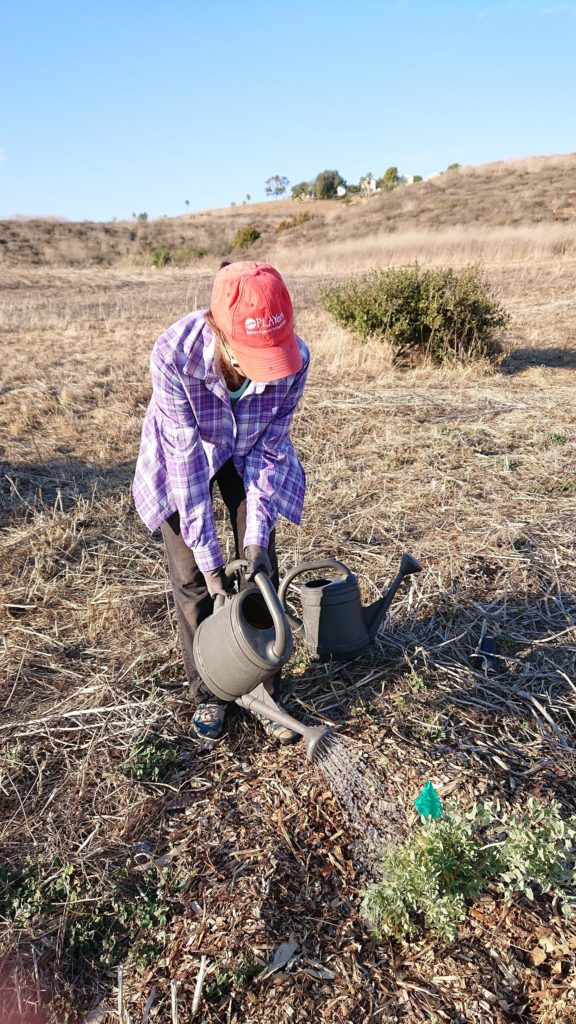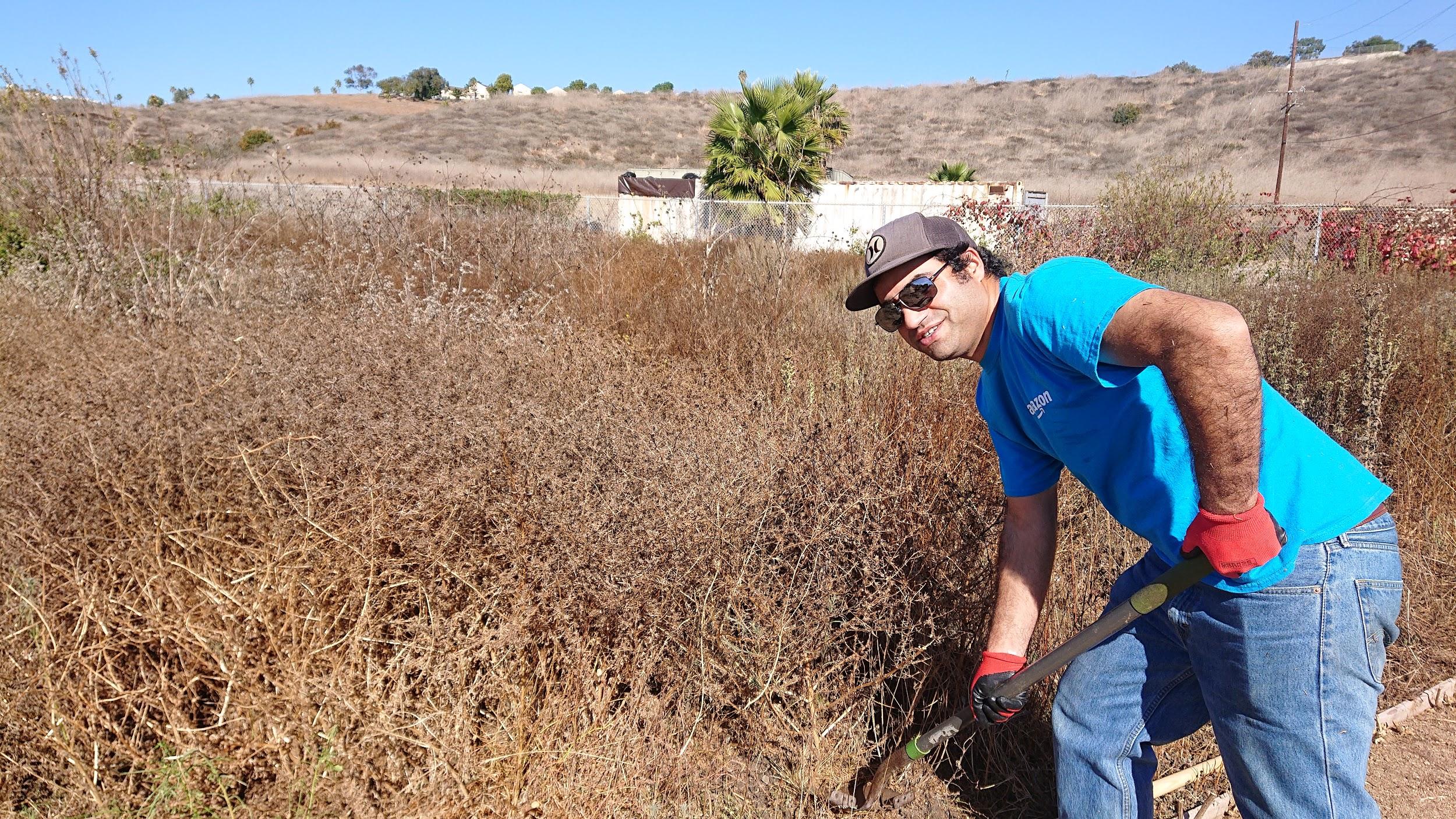The Palos Verdes Peninsula Land Conservancy (PVPLC or Conservancy hereafter) has used support from a Conze Grant from the California Native Plant Society, South Coast Chapter, to offer paid apprenticeships to students seeking native plant identification and horticulture skills utilizing the White Point demonstration garden as a training facility. Apprentices are students who gain opportunities to build careers in the specialized field of native plant horticulture through hands-on learning and doing. Apprentices are taught native plant maintenance gardening and restoration skills, and in return, the Apprentices provide quality maintenance and enhancement of the demonstration garden. Apprentices learn leadership and are skilled force multipliers leading and instructing volunteers and well as providing a consistent and trained level of horticultural expertise greater than the Conservancy can foster at a single volunteer day. Former Apprentices have earned positions at Tree People, Madrona Marsh, at Rancho Santa Ana Botanic Garden, Farmscape Gardens, and at the Conservancy as a result of this program.
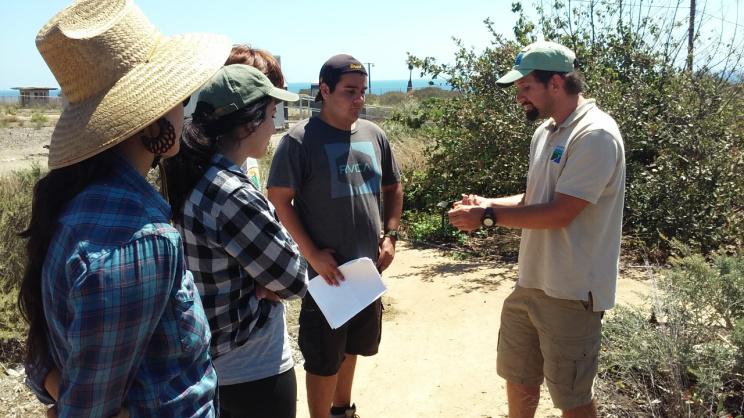
The Apprenticeship Program has run successfully from 2016 to 2019 and has applied for additional Conze Grant funds to continue the program in 2020 and 2021.
Accomplishments
- Expand the diversity of species represented in the garden, both enriching the educational value of the facility as well as providing an important source of local seed for many of our locally rare natives.
- Re-vegetated areas of the garden where initial plantings had failed due to flooding, drought or insufficient assistance for maintenance in years prior to the grant.
- Restored new areas, expanding the native garden significantly.
- Improved the aesthetic quality of the garden, installing rocks, mulch and other eye catching improvements.
- Expand the diversity of species represented in the garden, both enriching the educational value of the facility as well as providing an important source of local seed for many of our locally rare natives.
- Improved the aesthetic quality of the garden, installing mulch, new plant signage, and maintained trail access to visitors
Apprentice Role and Enrichment Highlights
- Apprentices gained native plant care skills including plant identification, seed collection, dispersal and propagation, planting, watering, pruning, electric hedging, weeding and other necessary stewardship skills.
- Shared their knowledge with and provided leadership and guidance for the intern team and other volunteers in the garden.
- Seasonal maintenance: Learning native perennial plants and annual species throughout the seasons.
- Mentorship of Garden Interns: train Native Garden Interns, help them achieve internship goals by holding them accountable, provide guidance, and discuss education goals with interns to achieve desired learning outcomes and objective goals.
- Apprentices also encouraged garden interns to give presentations at White Point Nature Center on common native species
Learning Points
- Apprentices learned about native plant care from identification skills, to seed collection and propagation, planting, watering, pruning, weeding and other necessary stewardship topics.
- Shared their knowledge with and provided leadership and guidance for the intern team and other volunteers in the garden.
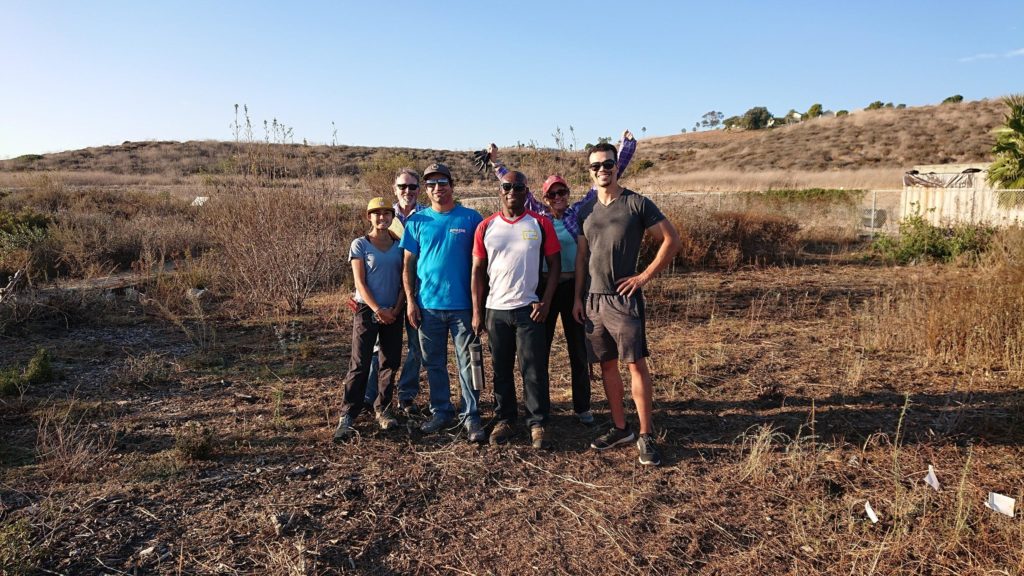
Garden Accomplishments
• Expand the diversity of species represented in the garden, both enriching the educational value of the facility as well as providing an important source of local seed for many of our locally rare natives.
• Improved the aesthetic quality of the garden, installing mulch new plant signage, and maintained trail access to visitors
Apprentice Role and Enrichment Highlights
• Apprentices gained native plant care skills including plant identification, seed collection, dispersal and propagation, planting, watering, pruning, electric hedging, weeding and other necessary stewardship skills.
• Shared their knowledge with and provided leadership and guidance for the intern team and other volunteers in the garden.
• Seasonal maintenance: Learning native perennial plants and annual species throughout the seasons.
• Mentorship of Garden Interns: train Native Garden Interns, help them achieve internship goals by holding them accountable, provide guidance, and discuss education goals with interns to achieve desired learning
outcomes and objective goals.
• Apprentices also encouraged garden interns to give presentations at White Point Nature Center on common native species
Apprentices and Their Stories
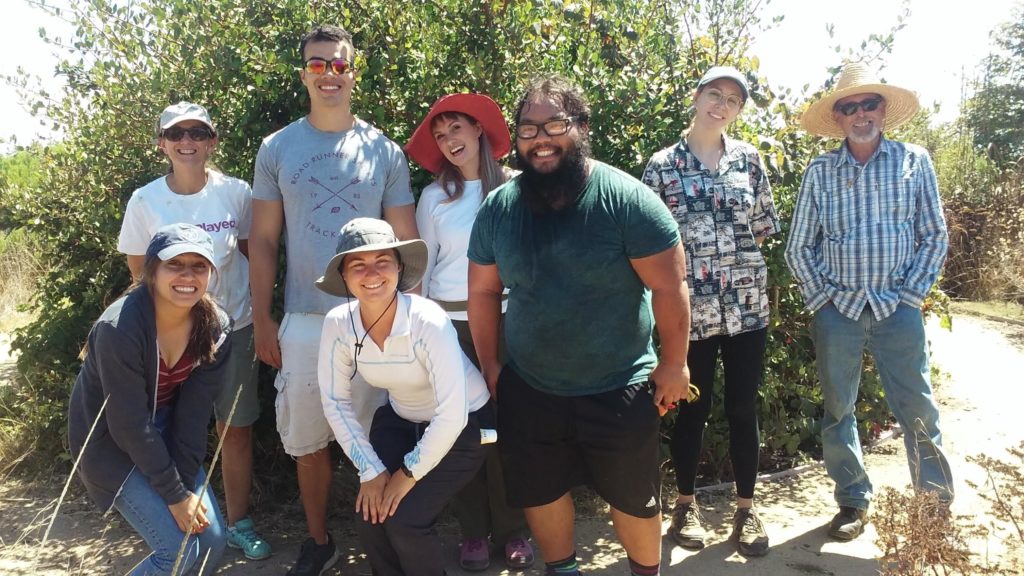
The following are Apprentices who have participated in the program as a direct result of the Conze Bequest grant support and self-reported details of their experience or how they have implemented their knowledge gained from the program to further their careers in the field.
- Cristal G. – Hired as a Volunteer Program Leader at Tree People
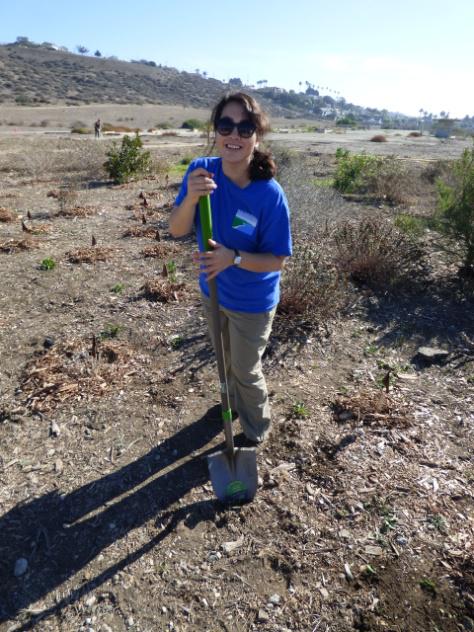
- Janie O. – Environmental Science student at El Camino College
- Jonathan N. – Madrona Marsh, Volunteer and Nursery Support.
- “My initial impression of the program was that we would be working with plants from all over California but, one of the most important lessons I learned is that it is important to feature the local flora and maintain the integrity of our local seed bank. The history of White Point was so fascinating to me, especially learning that White Point was once an island and soil samples uphill and downhill differ greatly: sandy versus clay. The enrichment lessons helped us learn types of plants, families, species, and genus. I now also work at Madrona Marsh managing the nursery and leading volunteer events. The apprenticeship taught/ teaches me useful techniques for growing and planting plants- how each plant grows, how big they get, soil etc. When I began the Madrona Marsh role, I used my experience to amend their propagation techniques and made recommendations that are already yielding positive results. Tony showed me how to use weeding forks which was useful for removing weeds with minimal disturbance around high density natives. Introducing this technique at Madrona helped to make hand-weeding more effective.”
- Cesar D. (2016-2017) – Summer Student Conservation Association (SCA) with Texas Parks and Wildlife Department in Huntsville State Park (invasive aquatic plants) and now hired as a Stewardship Technician with PVPLC.
- “The apprentice program with the PVPLC really gave me a deeper understanding about plants and what role they play in the environment. Like most people, I thought plants were more or less all the same and that they just happened to be wherever they were, but once I got into the program I realized that they do a lot more than meets the eye. I take both a moral and economical interest in native plants. I see them as a way to reduce the effects that people have had on wildlife and the land, and also a possible way to help reduce the number of fires in California down due to their tolerance of droughts and being more fire resistant compared to invasive plants, which will in turn keep the state from spending money fighting fire after fire. After continuing on with the program I was hired as a stewardship technician with the PVPLC where I continue to work with native plants.”
- Kainalu “Nalu” C. (Aug 2017- 18)
- “I can say with confidence, that I have improved my knowledge of our native and non-native flora. I am able to identify most of the coastal sage scrub, which has translated into an interest in restoration ecology and gardening. I have been considered for a couple of positions that I probably wouldn’t have if I had not taken part in the program.”
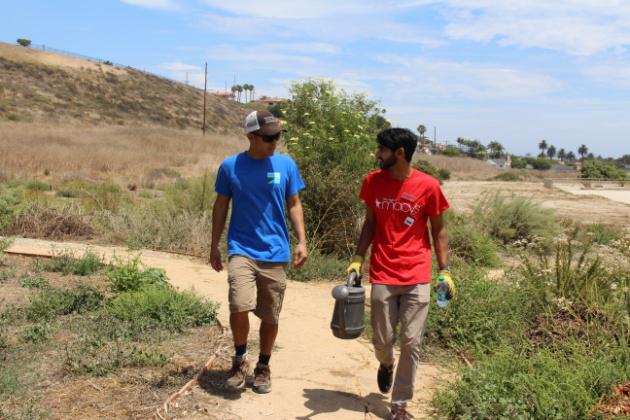
- Karina M. (2016 intern, Aug 2017-18 Apprentice)
- “As an apprentice at White Point Preserve I am given the opportunity to participate in restoration and conservation projects. In return I learn about our native flora, spend beautiful days in nature and go home with a big smile.”
- Gunnar T. (2018) – Hired on PVPLC field crew and currently working for Farmscape Gardens
- “Through the apprenticeship, I learned about aesthetics in native plant pairing, coastal sage scrub plant community plant identification and how to lead volunteers.”
- Cesar O. (2018-19) – El Camino College Horticulture student
- Alex K. (2019) – Hired as PVPLC Nature Center Manager
- As a native garden apprentice, I have been able to gain valuable experience in a leadership role while getting to learn more about a passion of mine since high school, Southern California native plants. The aspect of my apprenticeship that I am most appreciative of is being introduced to the South Bay Chapter of the CNPS. Prior to my apprenticeship, I didn’t know much about the group and had never attended a meeting. Since my apprenticeship began and after it has ended, I have tried to attend as many meetings as possible. I feel that my attendance at the monthly meetings has allowed me to meet many amazing people who have worked with native plants for years. By being able to attend lectures with guest speakers I have been introduced to many authors and professionals who are doing the work that I want to pursue in the future. My recent involvement in CNPS has broadened my horizons as well as the number and diversity of native plants that I have planted in my own backyard since October’s plant sale. I feel like I have found a professional group where I can learn and grow into the native plant expert that I someday aspire to be.
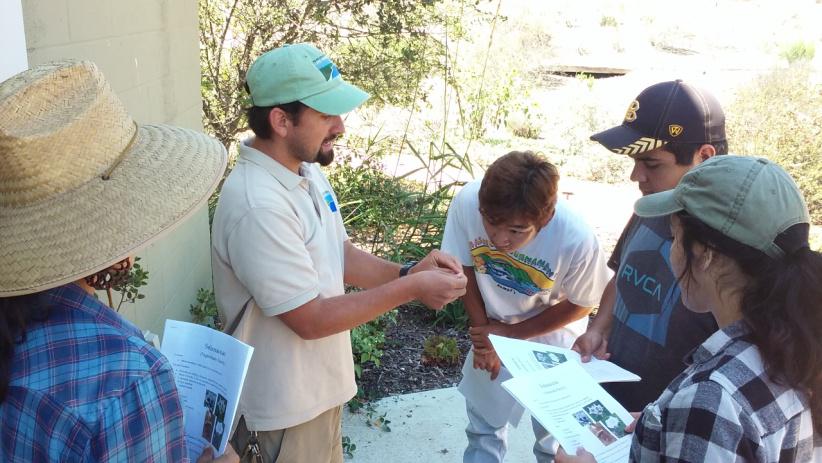
- Brandon L. (2019)— Hired as Environmental Safety Compliance Officer
- This opportunity helped me grow professionally, gaining a wealth of knowledge on local native plant species and identification methods.
- Tammy N. (2019)—Joined PVPLC GIS project team
- This apprenticeship was useful in solidifying my interests in environmental studies and has inspired me to build a garden in my own home. Working in the garden and learning something new every time I work reminds me that there is always more to learn about the environment
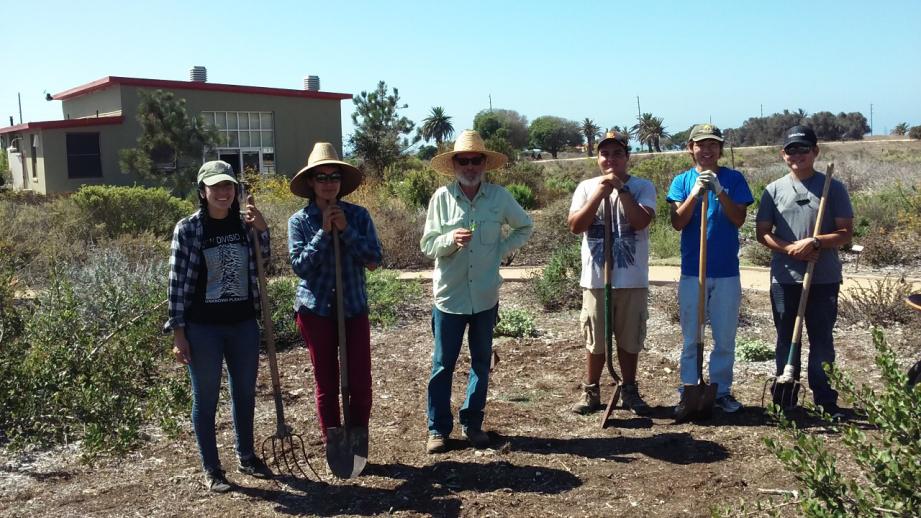
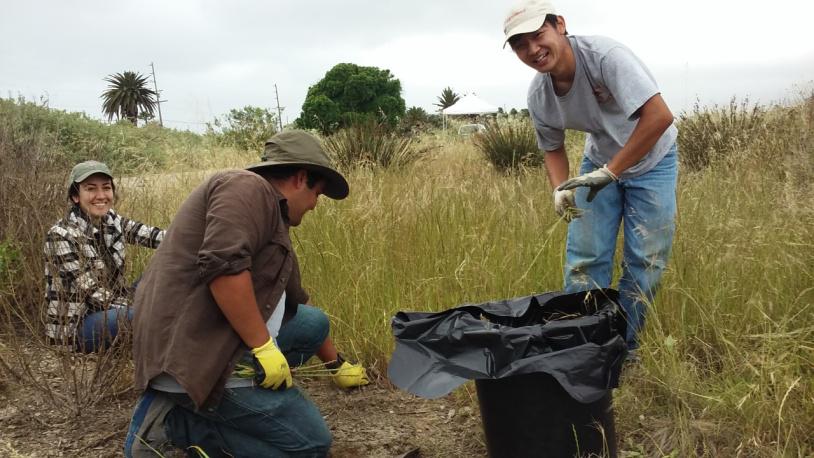
- Dee G. (2019)
- I have learned about native plants – common and scientific names, how to care for them, their lifecycles. I have absorbed information about how to maintain a native garden, and how to manage invasive species. There is so much to learn! I feel like I have just started. My goal is to learn about native plants and utilize this knowledge to plant other areas in the South Bay area. With the native plant training, access to expert information, and native plant sales, I have planted some plants in gardens I maintain. I am working with an elementary school to plant a native pollinator garden, with the goal to complete by the end of the school year June, 2020.
